Belle Boyd
Belle Boyd (left) was one of the most famous American Civil War spies. While her value and overall success is sometimes questioned, her reputation and general notoriety during the war is without doubt. Northern newspapers reported on her exploits with equal parts amazement and disgust, giving her titles such as, "La Belle Rebelle," "the Rebel Joan of Arc," "the Siren of the Shenandoah," and "Amazon of Secessia." One New York paper, the Tribune, described her as wearing, "...a Rebel soldier's belt around her waist, and a velvet band across her forehead with the seven stars of the Confederacy shedding their pale light therefrom … the only additional ornament she required to render herself perfectly beautiful was a Yankee halter [noose] encircling her neck."
Maria Isabella "Belle" Boyd was born May 9, 1844, in Martinsburg, Virginia (today West Virginia). Even as a child, she refused to conform to what was expected of her. According to a Boyd family story, one night, 11 year old Belle's parents were holding a dinner party which she was not allowed to attend due to her age, but Belle was not deterred. As the party was beginning, the guests were astonished to see young Belle ride into the dining room on her horse. Facing a flurry of rebukes from her parents, she defiantly replied, "Well, my horse is old enough, isn’t he? "
In the summer of 1861, soon after Belle Boyd turned 17, her home town of Martinsburg was taken by Union troops. True to form, Belle didn't let the burden of occupation keep her down as can be seen from this story, "...in time of war, it is almost impossible to travel the slightest distance without a pass signed by some official. On one occasion, when a picket was stationed between our farm-yard and the dairy, the dairymaid was not allowed to milk the cows without a pass signed by the officer of the day. This was a decided nuisance, and I hit upon the following plan to get rid of it. I wrote the following pass and got it duly signed: "These cows have permission to pass to and from the yard and dairy for the purpose of being milked twice a day, until further orders." This pass I pasted between the horns of one of the cows; and I was gratified to find that it had the desired effect, for they were not again stopped on their harmless errand; and whenever my pass came off the head of the cow I took care to replace it by another in the same style."
While she was clearly not one of the great beauties of the age - one reporter went so far as to write, "it would be ungallant to report, that her longish nose and protruding teeth made her a bit horse-faced" - she used her youth and apparent charm to keep many Union officers under her spell. She was quite skillful in this regard, and was not afraid to brag about it, "to one of these, Captain K., I am indebted for some very remarkable effusions, some withered flowers, and last, not least, for a great deal of very important information, which was carefully transmitted to my countrymen. I must avow the flowers and the poetry were comparatively valueless in my eyes; but let Captain K. be consoled: these were days of war, not of love, and there are still other ladies in the world besides the "rebel spy." " Despite Belle's protestations of innocence, her open flirtatiousness led her to be labeled, "the fastest girl in Virginia or anywhere else for that matter."
Confederate Spy
On July 4, 1861, Belle Boyd's impetuous nature set her on the path to becoming the most famous of the Confederate spies. On this day, the Union troops occupying Martinsburg were naturally celebrating Independence Day, but with a little whiskey and poor discipline, things soon got out of hand. Apparently, soldiers began roaming the town and terrorizing townspeople. It began with general drunken revelry, but soon they were breaking into homes. Some of these soldiers got wind of a certain rebel girl who was said to decorate her room with Confederate flags. They set off to rectify this matter. After breaking into the Boyd home, they were unable to find the offending flag; because Belle's slave Eliza heard what was going on and had taken the flag down. The soldiers were not satisfied, however...
They had brought with them a large Federal flag, which they were now preparing to hoist over our roof in token of our submission to their authority; but to this my mother would not consent. Stepping forward with a firm step, she said, very quietly, but resolutely, "Men, every member of my household will die before that flag shall be raised over us."
Upon this, one of the soldiers, thrusting himself forward, addressed my mother and myself in language as offensive as it is possible to conceive. I could stand it no longer; my indignation was roused beyond control; my blood was literally boiling in my veins; I drew out my pistol ( All our male relatives being with the army, we ladies were obliged to go armed in order to protect ourselves as best we might from insult and outrage) and shot him. He was carried away mortally wounded, and soon after expired.
Our persecutors now left the house, and we were in hopes we had got rid of them, when one of the servants, rushing in, cried out—
"Oh, missus, missus, dere gwine to burn de house down; dere pilin' de stuff ag'in it! Oh, if massa were back!"
The prospect of being burned alive naturally terrified us, and, as a last resource, I contrived to get a message conveyed to the Federal officer in command. He exerted himself with effect, and had the incendiaries arrested before they could execute their horrible purpose.
In the mean time it had been reported at head-quarters that I had shot a Yankee soldier, and great was the indignation at first felt and expressed against me. Soon, however, the commanding officer, with several of his staff, called at our house to investigate the affair. He examined the witnesses, and inquired into all the circumstances with strict impartiality, and finally said I had "done perfectly right." He immediately sent for a guard to head-quarters, where the elite of the army was stationed, and a tolerable state of discipline preserved.
Sentries were now placed around the house, and Federal officers called every day to inquire if we had any complaint to make of their behavior. It was in this way that I became acquainted with so many of them; an acquaintance "the rebel spy" did not fail to turn to account on more than one occasion.
Belle Boyd used these acquaintances with Union officers to gain military information. She sent secret messages to J. E. B. Stuart with the information she thought was most valuable. However, she made no attempt to encode the messages, or to disguise her handwriting; therefore, when one was intercepted, she was easily found out.
While her intentions as a spy were very obvious, the only punishment she received was a warning that she could be sentenced to death for what she had done. This did nothing to slow her down. In fact, it spurred her on, "I departed; not in peace, however, for my little "rebel" heart was on fire, and I indulged in thoughts and plans of vengeance."
In 1862, Belle moved to Front Royal, Virginia, to stay with her aunt. While she was there, Union General James Shields took up residence in her aunt's home. Little did General Shields know that young Belle was on the lookout for useful information...
The night before the departure of General Shields, who was about, as he informed us, to "whip" Jackson, a council of war was held in what had formerly been my aunt's drawing room. Immediately above this was a bedchamber, containing a closet, through the floor of which I observed a hole had been bored, whether with a view to espionage or not I have never been able to ascertain. It occurred to me, however, that I might turn the discovery to account; and as soon as the council of war had assembled, I stole softly up stairs, and lying down on the floor of the closet, applied my ear to the hole, and found, to my great joy, I could distinctly hear the conversation that was passing below.
The council prolonged their discussion for some hours; but I remained motionless and silent until the proceedings were brought to a conclusion, at one o'clock in the morning. As soon as the coast was clear I crossed the court-yard, and made the best of my way to my own room, and took down in cipher every-thing I had heard which seemed to me of any importance.
I felt convinced that to rouse a servant, or make any disturbance at that hour, would excite the suspicions of the Federals by whom I was surrounded; accordingly I went straight to the stables myself, saddled my horse, and galloped away in the direction of the mountains.
Fortunately I had about me some passes which I had from time to time procured for Confederate soldiers returning south, and which, owing to various circumstances, had never been put in requisition. They now, however, proved invaluable; for I was twice brought to a stand-still by the challenge of the Federal sentries, and who would inevitably have put a period to my adventurous career had they not been beguiled by my false passport.
After a 15 mile ride, Belle Boyd delivered her information to General Stonewall Jackson's men and returned home around dawn. Later that month, she performed the action for which she is possibly most well-known.
Being engaged in his famous Shenandoah Valley Campaign, General Jackson was advancing on Front Royal. Belle learned that the Union troops in town were badly outnumbered and intended to burn a number of bridges during their retreat. This action would give them time to join up with other Union forces in the area and prepare a stand against Jackson while he figured out how to get across the river.
Realizing that if Jackson attacked quickly enough, he could save the bridges and continue his attack unhindered, Belle took matters into her own hands. She sprinted past the Union lines and out of town. Realizing she must be up to something, Union troops turned their fire on the crazy girl running across to the enemy. Belle said that the bullets flew "thick and fast " about her, even reporting bullet holes in her skirt, but she reached the Confederate troops unhurt and delivered her message.
General Jackson immediately followed up on the information and managed to save the bridges, allowing him to continue his attack on the Union troops unchecked. Belle later claimed that General Jackson wrote her a personal thank you note for her action that day.
Captured!
By this time, Belle Boyd had already been detained a couple times by Union officials, but she always managed to secure a quick release. This was largely the result of the fact that most were of the opinion that an 18 year old girl was not much of a threat. Her activity at Front Royal put to an end those beliefs.
In the summer of 1862, she was arrested, on the orders of Secretary of War Edwin M. Stanton; and this time she was sent to Washington D.C. There she was imprisoned in the Old Capitol Prison, in the custody of the famous Union spy and head detective, LaFayette Baker.
Her luck seemed to hold, however, when, after only a month, she was freed thanks to a prisoner exchange. She was captured again in 1863, but somehow she escaped serious punishment and was simply "exiled" to Richmond, Virginia. The Confederate Secret Service then employed her as a courier to England, and she took ship to London aboard the blockade runner Greyhound in 1864. This failed when the Greyhound was taken by the Union Navy in the Atlantic Ocean and Belle was captured again. She was exiled once more, this time to Canada. She decided that Canada wasn't for her, and headed for London again.
Once she was in London, she did what she could from there for the Confederate cause. In London she met the Union Navy officer who had captured her aboard the Greyhound, and the two were soon married. She lived out the rest of the War in London, but her husband died soon after the war. She then began acting and wrote her memoirs in order to make money. Later she traveled all over the U.S. giving dramatic speeches detailing her experiences as a Confederate spy. Belle died in what is now Wisconsin Dells, Wisconsin, in 1900 while she was there to perform for a gathering of Union veterans.
All in all, Belle Boyd was placed under arrested six times, thrown in prison three times, and exiled twice. While some believe her abilities as a spy to be exaggerations, or at least overrated, there can be no doubt that the life of Belle Boyd is one of the truly great American Civil War stories...
American Civil War Story - Home
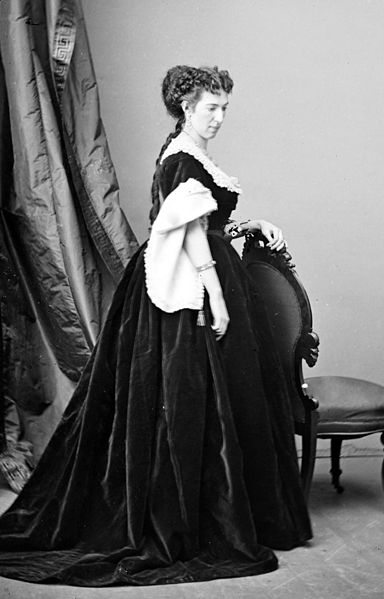

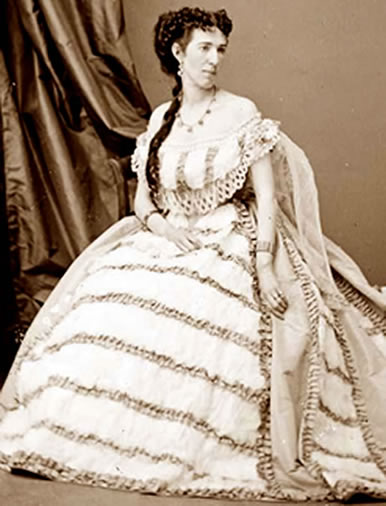
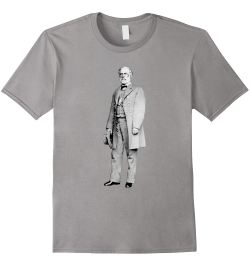




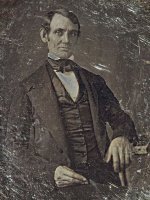
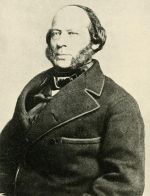
New! Comments
Have your say about what you just read! Leave me a comment in the box below.